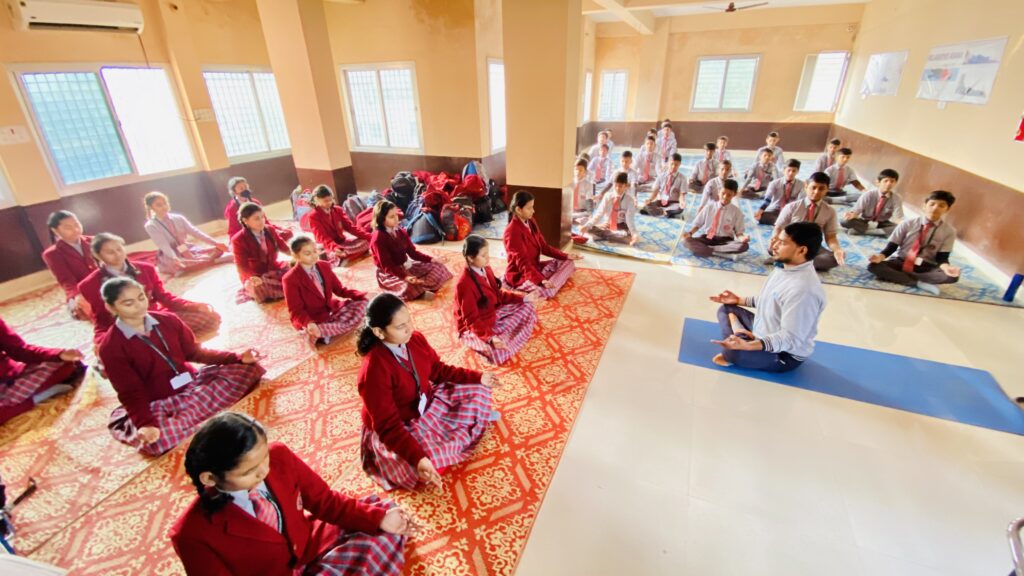Patanjali Yog:
Yamas (ethical disciplines) – Non-violence, truthfulness, non-stealing, celibacy, and non-greed.
Niyamas (personal observances) – Purity, contentment, austerity, self-study, and devotion.
Asanas (postures) – Physical postures designed to prepare the body for meditation.
Pranayama (breath control) – Techniques for regulating the breath to control prana (life force energy).
Pratyahara (withdrawal of the senses) – Turning the senses inward for deeper concentration.
Dharana (concentration) – Focusing the mind on a single point or object.
Dhyana (meditation) – Continuous and uninterrupted concentration leading to deep meditation.
Samadhi (enlightenment or bliss) – The ultimate goal of yoga, which is union with the divine or the realization of the true self.
Yoga, as taught by Patanjali, is often incorporated into educational or spiritual institutions with an emphasis on discipline, self-awareness, and holistic development of the body, mind, and spirit. It is part of the overall curriculum at international Hindu school, especially those that aim to blend Eastern spiritual traditions with modern education.
If you’re referring to an International Hindu school that includes Patanjali Yog as part of its curriculum, it’s likely that the school focuses on teaching not only academic subjects but also spiritual practices and values rooted in Hindu philosophy. IHS offers courses or workshops on yoga, meditation, Ayurveda (traditional Indian medicine), and other aspects of Vedic wisdom, with Patanjali Yog being a central theme.
International Hindu School is specifically dedicated to Patanjali Yog,


